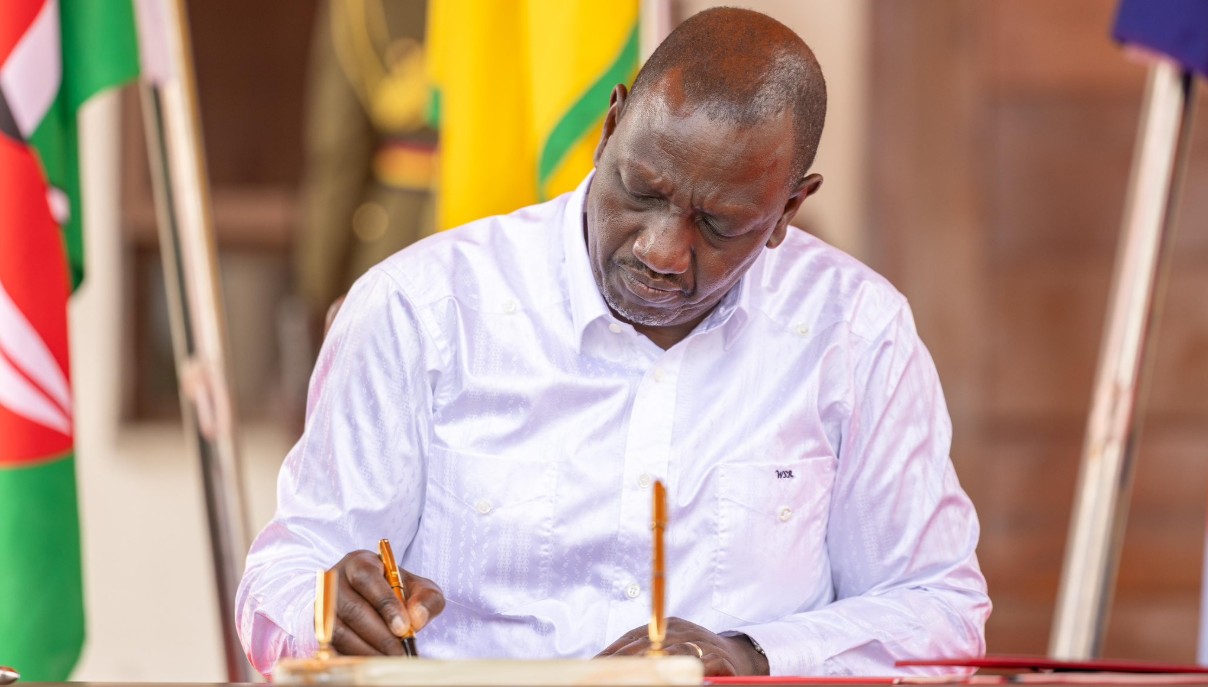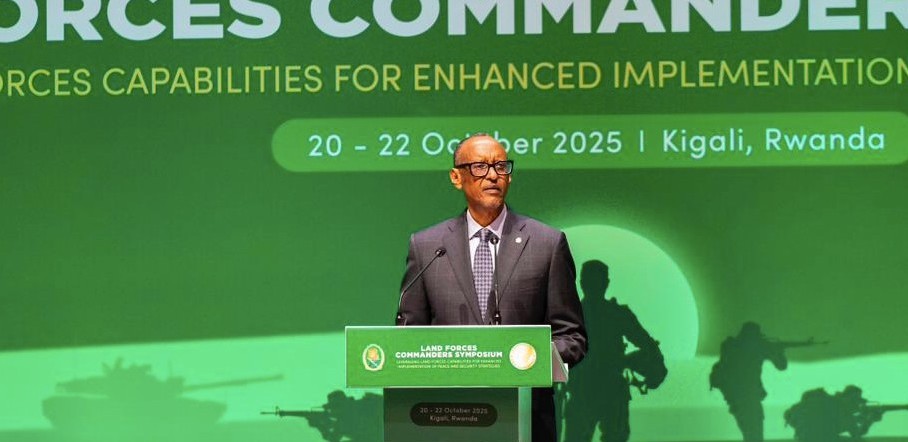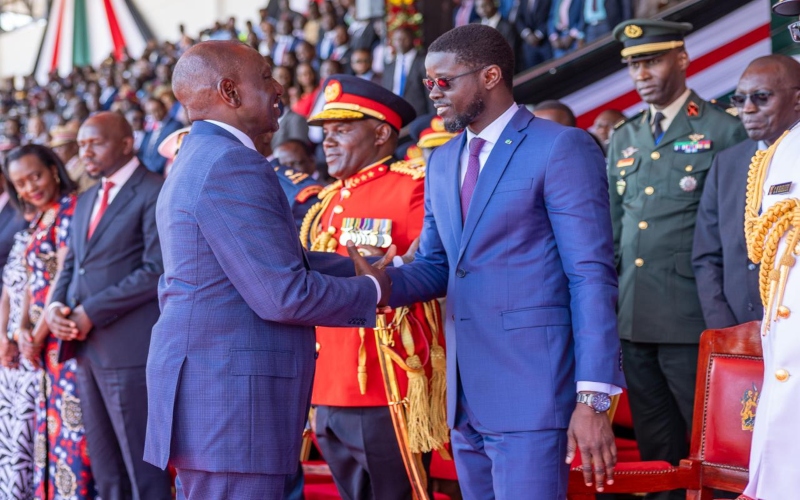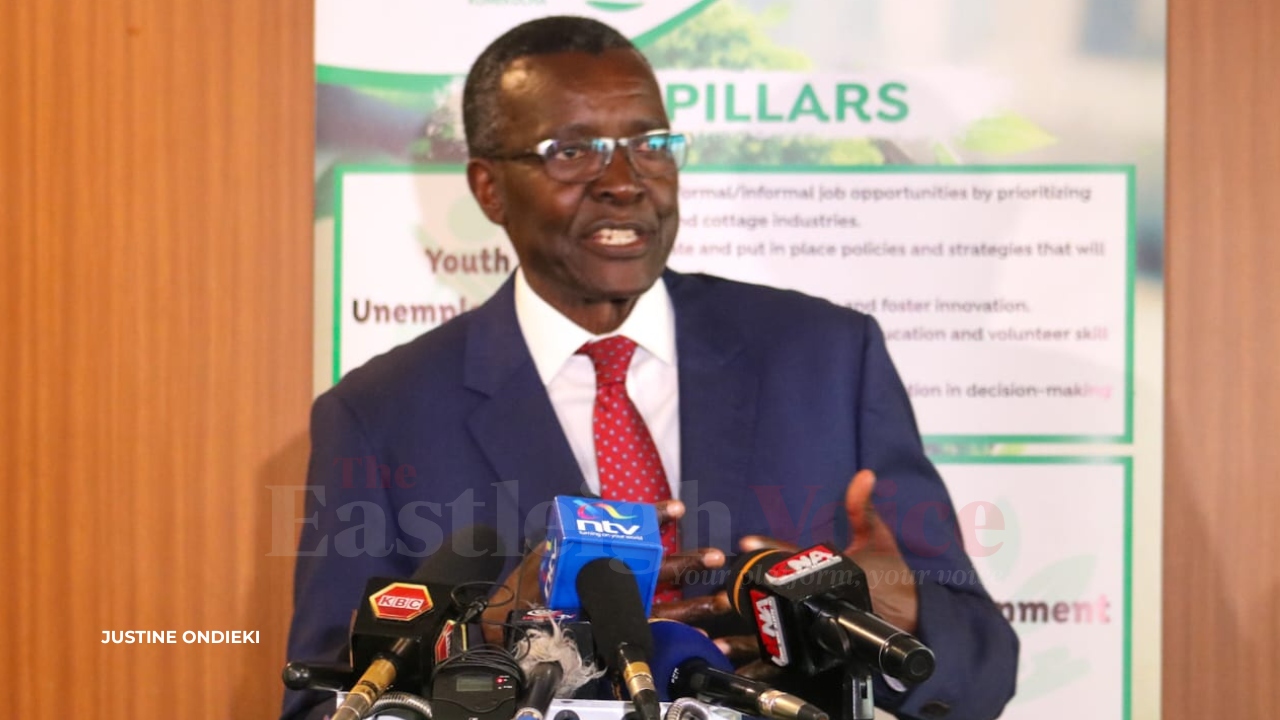How artificial intelligence deepfakes, disinformation could shape Kenya’s 2027 elections

Deepfakes, cheap fakes, and fake news are increasingly being used as easily and cheaply produced tools of deception, leaving vulnerable citizens shocked and misinformed.
Two viral videos circulating on social media have sparked debate over the growing role of artificial intelligence (AI) in Kenya’s political landscape, as the country gears up for a high-stakes general election in 2027.
The first AI-generated video features Interior Cabinet Secretary Kipchumba Murkomen appearing to admit he was unprepared for the role, calling himself a failure, claiming he only wanted expensive watches and belts, and announcing his resignation.
More To Read
- Kagame warns Africa to brace for AI-driven cyberattacks, urges united defence strategy
- Kenya records 842 million cyber threats as AI-powered attacks escalate
- African languages for AI: The project that’s gathering a huge new dataset
- Madagascar military backs protests, installs new army chief amid anti-government uprising
- Child malnutrition in Kenya: AI model can forecast rates six months before they become critical
- YouTube Music testing new feature that could rival Spotify’s AI DJ
The second video shows an AI-generated image of Communications Authority Director General David Mugonyi allegedly defending the media shutdown during the June 25 protests, claiming he is the enemy of the press and that this was precisely why President William Ruto appointed him.
The two videos, created using artificial intelligence, are part of a broader misinformation and disinformation campaign aimed at distorting facts and swaying public opinion ahead of Kenya’s 2027 elections.
It is not in doubt that artificial intelligence is being used to influence democratic processes.
Shocked and misinformed
Deepfakes, cheap fakes, and fake news are increasingly being used as easily and cheaply produced tools of deception, leaving vulnerable citizens shocked and misinformed.
So serious is the concern that the National Intelligence Service (NIS) Director-General Noordin Haji in March warned that malicious actors, both domestic and foreign, are weaponising social media and artificial intelligence to destabilise the country.
Haji identified disinformation and misinformation as growing threats to national security, calling for urgent measures to counter their spread.
“While access to information remains the cornerstone of democratic governance, socioeconomic stability, and interstate relations, propagation of disinformation and misinformation continues to threaten these ideals,” Noordin said while speaking during a symposium organised by the National Intelligence Research University (Niru).
Gen Z protests
He linked the spread of false information to the June 2024 Gen Z protests, which initially began as demonstrations against proposed tax laws but, according to government officials, were infiltrated by political elements seeking to undermine the Kenya Kwanza administration.
The Independent Electoral and Boundaries Commission (IEBC) is aware of how AI is significant to the outcome of the 2027 elections.
The agency, early this year, took part in a regional conference on the use of artificial intelligence, digital and social media in elections in Kenya.
The conference was organised by Electoral Law and Governance Institute for Africa (ELGIA) and brought together leaders, experts and practitioners to explore how technology is shaping the future of democracy and elections in Kenya and across Africa.
IEBC CEO Marjan Hussein Marjan noted that AI, digital and social media are three of the greatest innovations to have widely, rapidly and seamlessly influenced the globe.
“The application of AI will define the future, and therefore Africa must develop new capabilities, new tools and new regulatory frameworks to ensure that AI works for it, for its partners, for its interests, and for its values, and not against it,” observed Marjan.
Turning point
According to Hlengiwe Dube, Project Manager for Expression, Information and Digital Rights at the Centre for Human Rights in South Africa, generative AI could mark a turning point in the spread of disinformation and hate speech by undermining truth and safety, fueling manipulation, and increasing social division and instability.
"AI can analyse public sentiment or the public discourse, especially on social media, to gauge the mood and the potential for unrest." This allows stakeholders to respond proactively, ensuring the elections remain peaceful and transparent.
Information technology experts say that if used well and responsibly, AI presents great opportunities to improve elections, as it can be used to monitor elections in real time, providing an innovative solution to a common challenge faced by many African nations.
Governance and political observer Samuel Owida notes that AI can analyse live feeds from cameras or sensors at polling stations, allowing for the detection of irregularities like voter intimidation or electoral fraud almost instantly.
“AI can also analyse vast amounts of data, including voting patterns and the registration process, to detect anomalies indicative of manipulation. AI algorithms can help in detecting anomalies in voting patterns or registration processes, which can be indicative of fraud or other forms of manipulation."
Top Stories Today











































